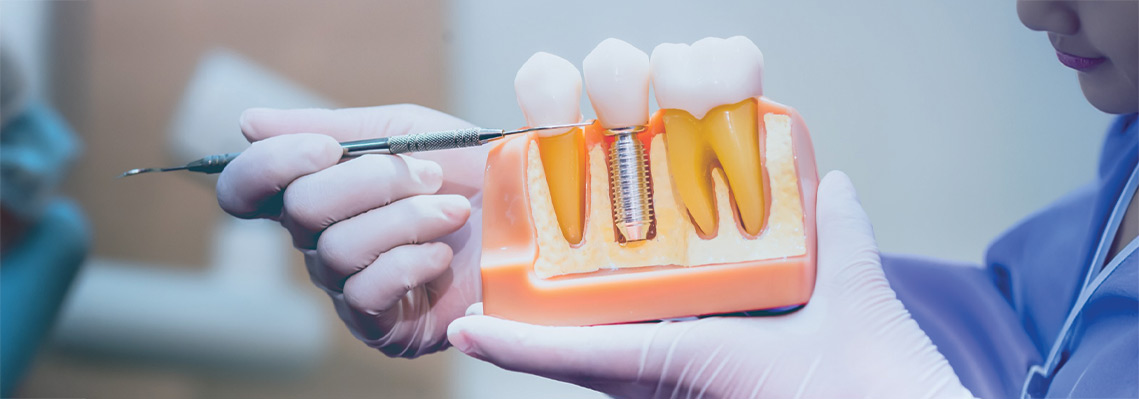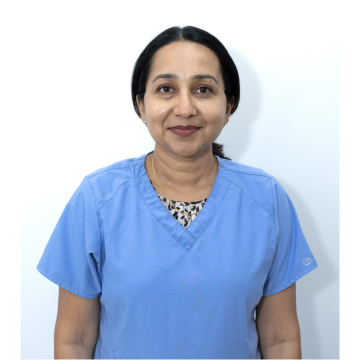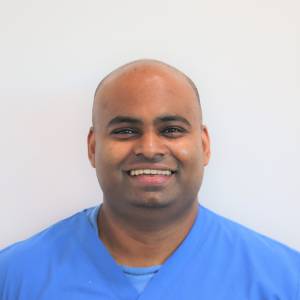More people are turning to dental implants because they want a real, lasting fix, not a removable denture or a short-term patch. When done right, implants give you teeth that feel strong, look natural, and hold up over time. But that outcome depends on more than just the product. It comes down to the choices you make, from the type of implant to the person placing it.
How to choose the perfect dental implants depends on your personal dental health, budget, and goals; knowing what you need helps narrow your options from the start.
Discover the perfect dental implant option tailored to your smile
A] Understanding Dental Implants: What Are They?
A dental implant is a small post placed in your jaw to act like the root of a missing tooth. It’s usually made from titanium or ceramic. After healing, it holds a crown, bridge, or denture securely in place. The result looks and functions like a real tooth because it’s anchored the same way.
Unlike a bridge, an implant doesn’t rely on neighbouring teeth. Unlike a denture, it doesn’t move around or need glue. That stability helps protect your jawbone and keeps your bite strong.
You get a lot from one implant:
- A long-lasting fix, often measured in decades
- A natural shape and feel
- Strong bite support without discomfort
- A way to prevent bone loss over time
If you want something that stays in place, looks real, and supports your health, an implant is one of the most reliable choices you can make.
B] Types of Dental Implants and Choosing the Right One
Dental implants aren’t one-size-fits-all. The right one depends on your bone structure, how many teeth you’re replacing, and what outcome you’re aiming for.
Here are the main types:
- Endosteal implants go into the jawbone. These are the most common and work well when your bone is healthy.
- Subperiosteal implants rest on top of the bone, under the gum. They’re usually used when grafting isn’t possible.
- Zygomatic implants attach to the cheekbone instead of the jaw. These are for more advanced cases with limited bone.
If you’re missing most of your teeth, All-on-4 implants might be a better fit. Four implants support a full arch of fixed teeth. This option skips grafting in many cases and speeds up the timeline. It’s a practical route if you want permanent teeth with fewer procedures.
In places like Queensland, many Sunshine Coast dentists offer full-mouth implant options, including All-on-4. You’ll find both general and specialised providers offering this kind of work.
C] The Dental Implant Procedure: What to Expect
Getting a dental implant takes time. It’s a step-by-step process, not a one-visit fix. Each phase has a purpose, and skipping any part could lead to problems later.
Here’s how it usually goes:
- Consultation and imaging
Your dentist checks your bone health, takes scans, and asks about your medical background.
- Planning
You get a detailed plan that covers where the implant goes, what kind of restoration it will hold, and how long it will take.
- Surgical placement
The implant goes into your jaw under local anesthesia. You’ll start healing right away.
- Healing
Your bone grows around the post and locks it in. This usually takes 3 to 6 months.
- Abutment placement
Once healed, a small piece called an abutment is added. This connects the implant to the crown.
- Final crown
A custom crown is placed, shaped to match your other teeth and restore full function.
If everything goes smoothly and no grafting is needed, the full process can take about three months. If you need extra steps, it might take closer to nine. Either way, a clear plan helps you stay on track and know what to expect at each stage.
D] What Makes a Dental Implant Last Longer
An implant can last the rest of your life; but only if everything around it is done well and cared for. It’s not just about putting a post in your jaw. It’s about choosing the right materials, using the right techniques, and building a solid routine after placement.
Here’s what matters most:
- Material
Titanium is trusted for a reason: it’s light, strong, and accepted well by the body. Ceramic is a good option if you want something metal-free.
- Precision
A well-placed implant reduces the risk of shifting, bone loss, or failure. You want a provider who uses accurate imaging and takes their time.
- Bone support
Good bone makes for a good implant. If yours is thin or weak, you may need a graft to give it a strong base.
- Daily care
Brushing, flossing, and dental checkups still matter. Implants aren’t affected by decay, but the surrounding tissue can still get infected.
Take care of your implant the same way you would your natural teeth. The better your habits, the longer your results will last. Choosing between implant types involves looking at both clinical needs and lifestyle preferences.
E. Full Mouth Dental Implants: Is It Right for You?
If you’ve lost most or all of your teeth, full-mouth implants give you a fixed, permanent alternative to dentures. They don’t come out at night. They don’t slip during meals. They work and feel like real teeth.
You have two main options:
- All-on-4
Just four implants support a full upper or lower arch. It’s efficient, avoids grafting in many cases, and works well for a wide range of patients.
- Individual implants
Each missing tooth is replaced with its own implant and crown. This is more flexible but takes more time and cost.
You might be a good candidate for full-mouth implants if:
- Your gums are healthy
- You have enough bone or can get a graft
- You want something fixed and low-maintenance
Your dentist should walk you through each option and help you decide based on your goals, timeline, and comfort.
F] Cost of Dental Implants: What You Should Know?
Implants aren’t the cheapest option up front, but they’re often the most cost-effective over time. You avoid ongoing repairs, replacements, and discomfort.
Here’s a general idea of costs:
- Single implant: $3,000 to $6,000
- Several implants: $6,000 to $20,000
- Full arch (All-on-4): $20,000 to $30,000
Full-mouth dental implants can seem pricey but offer unmatched stability and function compared to removable options.
Other costs might include:
- Bone grafts or sinus lifts
- Temporary teeth during healing
- Material upgrades for crowns
- Dentist experience and clinic location
Some insurance plans cover parts of the procedure, and many providers offer payment plans. If you’re getting quotes in Sunshine Coast, look for itemised breakdowns so you know what’s included. The cost of dental implants may also vary based on recovery support and long-term maintenance services offered.
G] Questions to Ask Before Getting Dental Implants
You don’t need to know every technical term. But you do need clear, honest answers. A good provider won’t rush you or brush off your questions. Questions to ask before dental implants include the provider’s experience, healing timelines, and your candidacy for various techniques.
Here’s what to ask:
- How many implants have you placed?
- What kind of implants and brands do you use?
- What is the expected healing time for my case?
- What happens if something goes wrong?
- What’s included in the quote?
- How do you track long-term results?
The more direct the answers, the more confident you can feel moving forward.
H] Dental Implant Recovery Time & Long-Term Care
The way you heal sets the tone for how well your implant performs. Early care matters just as much as the surgery itself.
In the first few days:
- Expect some swelling or mild discomfort
- Stick to soft foods and avoid chewing near the site
- Skip alcohol and tobacco
- Follow your medication plan exactly
After that:
- Brush gently but thoroughly
- Use a soft toothbrush and non-abrasive paste
- Clean around the implant every day
- Keep your checkups every six months
These habits protect your investment and lower your risk of gum issues like peri-implantitis. The cleaner you keep the area, the longer it lasts.
I] Before and After: What Changes and What Doesn’t
Implants do more than fill a gap. They help you chew better, speak more clearly, and smile without second-guessing how your teeth look. They also support your jaw structure and help maintain the shape of your face.
But the final result still depends on your starting point; your bone condition, your overall health, and your dentist’s skill.
Here’s how to protect your outcome:
- Follow every care instruction
- Speak up if you feel pain, pressure, or changes
- Keep every follow-up appointment
Once healed, your implant should feel like it’s always been part of your mouth.
J] How to Choose the Right Dental Expert?
Implants are only as good as the person placing them. A skilled provider plans every step, handles challenges, and follows through. You don’t want shortcuts. You want a dental expert who takes your oral health seriously; because it matters.
Look for:
- Formal implant training and credentials
- A structured consultation process
- Transparent pricing and timelines
- Patient reviews that highlight communication
- Examples of successful cases
If you’re considering this treatment locally, check out options for dental implants in Sunshine Coast to find both affordability and experience.
Have questions? Our team is here to help!
K] Final Thoughts
Dental implants give you more than a replacement tooth. They give you the ability to eat, smile, and speak with confidence. But results don’t happen by chance. They come from careful choices, clear planning, and daily care. For a reliable experience from start to finish, consider working with a trusted dentist in Sunshine Coast.
Use this guide to help you ask better questions and make more informed decisions. With the right approach, your implants won’t just last: they’ll let you stop thinking about missing teeth altogether.

Dr. Adarsh Pisharodi
Dr. Adarsh Pisharodi, serving as the principal dentist at Oris Dental, brings a wealth of expertise spanning over 26 years to his esteemed practice. Specializing in cosmetic dentistry, dental implants, and orthodontics, he takes immense pride in rejuvenating countless smiles and instilling confidence in Sunshine Coast residents. As an esteemed member of the Australian Dental Association and esteemed dental societies, he remains steadfast in delivering exceptional care to his patients.















